
Adoption Wise
Lisa C. Qualls and Melissa Corkum
- 41 minutes 51 seconds#245: The Science of Caring with Dr. Jon Baylin and Jessica Sinarski
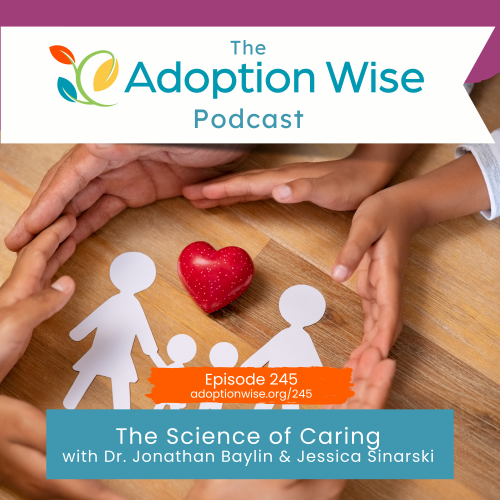
We often get questions about whether teachers or other folks who interact with our kids can have blocked care. Or what about siblings? Also, can you have blocked care towards a spouse? Since we weren’t the first ones to name blocked care, we went to the source. We are thrilled to bring you this conversation with Dr. Jonathan Baylin, author of Brain-Based Parenting and other works, and Jessica Sinarski of BraveBrains. Besides digging deeper in the science of caregiving, we also talk about the differences between primary and secondary blocked care and blocked compassion.
Dr. Baylin received his doctorate in clinical psychology from Peabody College of Vanderbilt University in 1981. While continuing his clinical practice, he has immersed himself in the study of neurobiology and in teaching mental health practitioners about the brain. Dr. Baylin has delivered keynote sessions at international conferences and has also given numerous workshops both internationally and regionally within the USA.
Jessica Sinarski is a licensed mental health counselor, educator, and award-winning author. She is also the founder of the resource and training platform BraveBrains. Jessica makes tough topics easier, empowering the healers and the cycle breakers among us. She lives in Pennsylvania with her husband and three busy boys.
Click here to download a transcript for this episode.
Relevant Links
Brain-Based Parenting: The Neuroscience of Caregiving for Healthy Attachment* by Baylin and Hughes
Connect with Jessica on Instagram
Climbing Out of Chronic Stress (with printable cheat sheet)
*this is an affiliate link
28 May 2024, 6:00 am - 35 minutes 23 seconds#244 When Blocked Care Affects Your Marriage
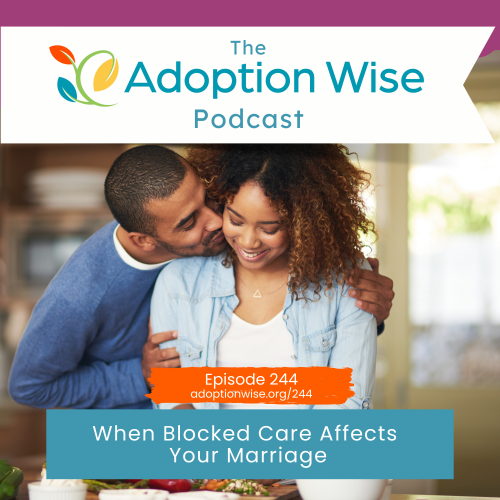
Marriage is already hard, but add in parenting children with significant needs and blocked care, and staying married may seem impossible. In this episode, Lisa and Melissa answer two listener questions about marriage and blocked care with personal stories and practical tips. If you’re not married, you’ll still find insights you can apply to your close relationships with folks who love your family.
Click here to download a transcript for this episode.
Relevant Links
Dr. Sue Johnson (Emotionally Focused Therapy)
* this is an affiliate link
14 May 2024, 6:00 am - 42 minutes 36 seconds#243: The Power of Community when Reclaiming Compassion with Kayla North
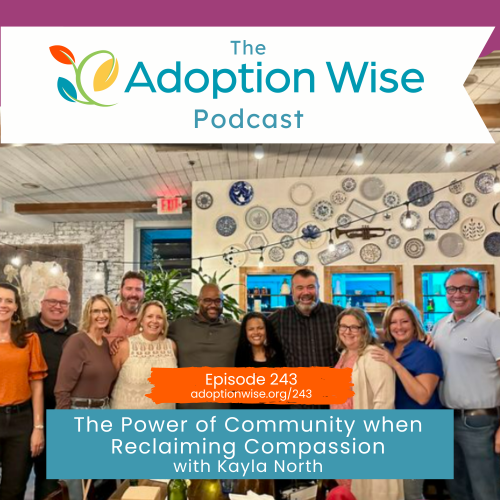
We believe that overcoming blocked care is best in community. In this episode, we explore the power of community and compassion in the journey of foster care and adoption. Kayla North generously shares her experiences of blocked care and how support, self-care, and practical strategies can lead to resilience and healing. They also talk about how mom’s found hope through attending Reclaim Compassion book clubs last summer.
Ryan and Kayla North are a dynamic husband-and wife duo who have dedicated their careers to helping adults create environments where children feel safe, welcome, and loved. Through their work, they have become trusted voices for parents, professionals, churches, and educators. They are Co-Founders of One Big Happy Home and the Empowered Parent Podcast.
Click here to download a transcript for this episode.
Relevant Links
30 April 2024, 6:00 am - 46 minutes 20 seconds#242: How a Child’s Mental Health Impacts the Family with Amber Reynolds
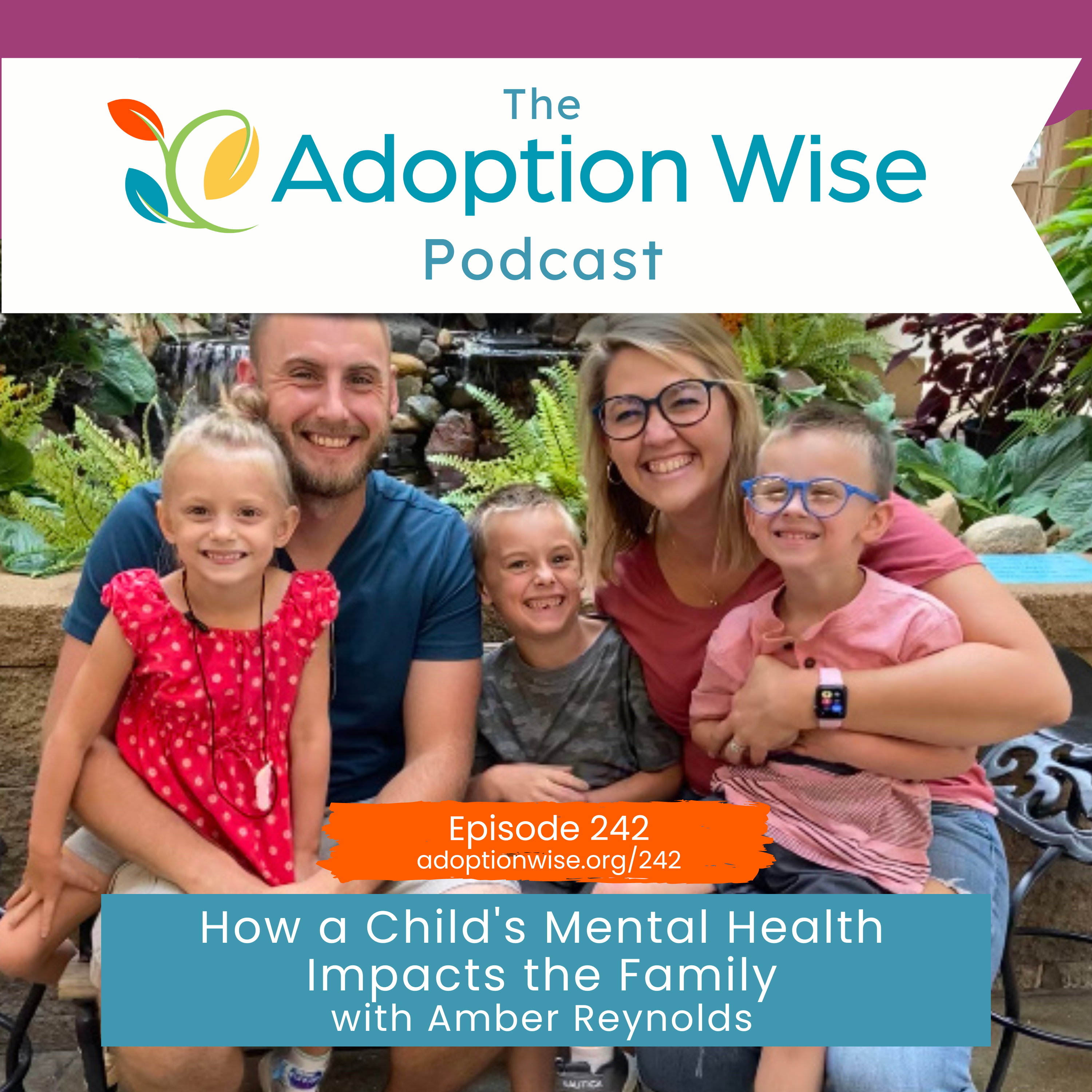
Lisa and Amber Reynolds (our Director of Communications) chat about the challenges of parenting a young child struggling with mental illness. Amber shares candidly about what she wishes she had done differently, how her son’s mental illness affected her health, and how she’s overcoming blocked care. As an Enneagram 8, Amber loves advocating well for all those in her care. She and her husband, Chris, have been foster parents for seven years and have three children through adoption.
Click here to download a transcript for this episode.
Relevant Links
16 April 2024, 6:00 am - 1 hour 29 seconds#241: [workshop] What Shapes You: Unlocking Your Family System for Hope
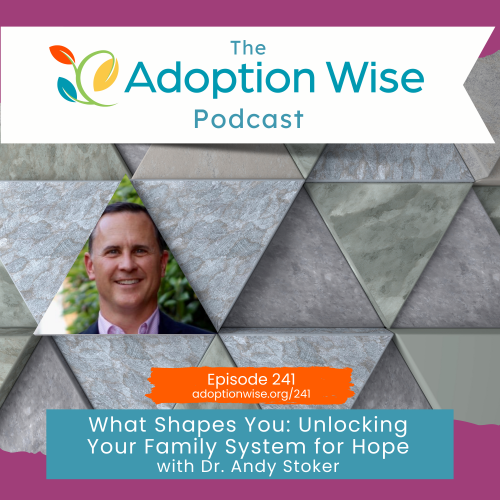
Generally, what we carry into our childhoods and throughout our adulthood is part of a wider series, even patterns, of behavior, traumas, and worldviews. In this workshop, Dr. Stoker will give a very brief overview of Family Systems theory. You will learn:
- highlights for Family Systems theory
- a narrative that will assist you in seeing systems more objectively
- tools to heal and offer hope for those with whom you live and serve
Dr. Andy Stoker (he/him) is married to Megan, and they are parents to two sons, Alex (20) and Wesley (15). Andy is an ordained United Methodist minister, holds a secular PhD in Family Science, and is a certified mindfulness meditation teacher in the Western Buddhist tradition. He currently serves as the Senior Pastor of Central United Methodist Church in Albuquerque, New Mexico. For over two decades, Andy advocated for justice, fairness, equity, and inclusiveness in the Dallas area in the areas of public education, fair employment, healthcare access, and housing justice. In his free time, he co-hosts a parenting podcast with a psychologist and pediatrician called “Parenting for the Present.”
Click here to download a transcript for this episode.
Relevant Links
Connect with Andy on Instagram
Parenting for the Present podcast
Generation to Generation: Family Process in Church and Synagogue* by Edwin H. Friedman
Bowen Theory’s Secrets* by Michael Kerr
A Family Genogram Workbook* by by Israel Galindo, Elaine Boomer, and Don Reagan
*this is an affiliate link
2 April 2024, 6:00 am - 28 minutes 29 seconds#240: Tangible Ideas for Processing Grief
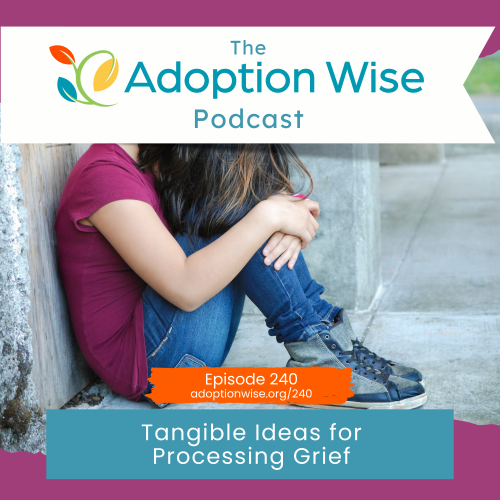
Foster care and adoption are full of ambiguous losses and disenfranchised grief. In this episode, Lisa and Melissa discuss the gap between expectations and reality which can lead to feelings of grief. They offer tangible practices, including writing, verbal processing, and bodywork. The importance of acknowledging and processing darker emotions such as sadness, anger, or resentment without judgment is emphasized. Lastly, they mention adapting these practices for children experiencing similar grief and loss.
Click here to download a transcript for this episode.
Relevant Links
Reclaim Compassion: The Adoptive Parent’s Guide to Overcoming Blocked Care with Neuroscience and Faith* by Qualls and Corkum
#33: Grieving the unexpected losses in adoption
#121: An Introduction to Trauma & Tension Release Exercise (TRE) with Christa Bevan
* this is an affiliate link
19 March 2024, 6:00 am - 40 minutes 53 seconds#239: Fostering Children of Incarcerated Moms with Rebekah Cook
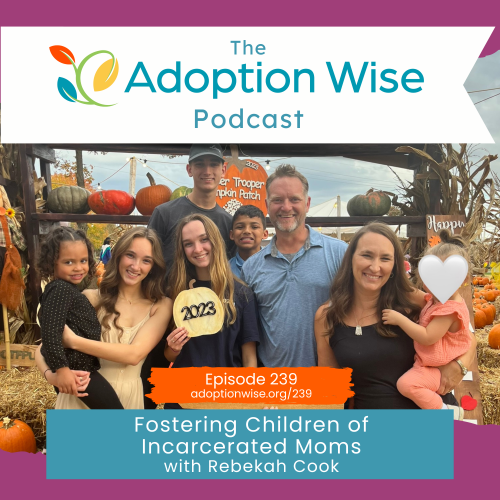
Rebekah Cook shares her experiences of fostering children of incarcerated moms through a ministry called Jonah’s Journey. She emphasizes the importance of establishing a relationship with the biological parents and discusses the unique challenges and rewards of this type of foster care. Rebekah also touches on her struggle with blocked care and how she sought support and healing.
Rebekah is a stay at home mom and former elementary school teacher who is passionate about loving and serving vulnerable moms in her community. She and her husband, Josh, are parents to 7 kids through birth, adoption and foster care. They are also loving their newest roles as grandparents to two little ones!
Click here to download a transcript for this episode.
Relevant Links
5 March 2024, 6:00 am - 25 minutes 43 seconds#238: Finding Life-Giving Connection
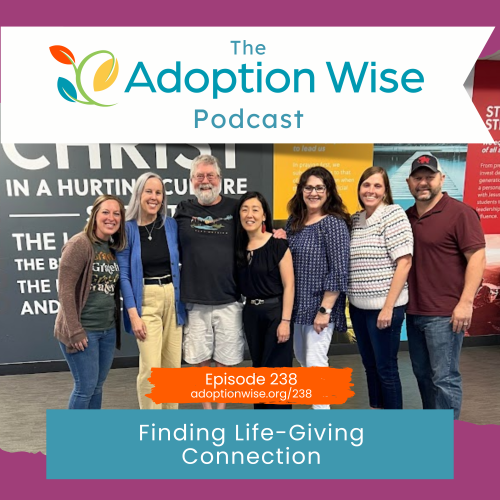
One of the signs of blocked care is isolation. In this episode, Lisa and Melissa chat about the importance of building supportive communities in virtual and real-life spaces. They recommend parents seek out and engage in safe, validating communities where they can discuss their challenges openly. All parents need to fill up their “relationship bucket” in order to maintain compassionate parenting.
Click here to download a transcript for this episode.
Relevant Links
House of Eve* by Sadeqa Johnson
* this is an affiliate link
20 February 2024, 6:00 am - 25 minutes 57 seconds#237: [mailbag] PDA, teen borderline personality disorder, despair
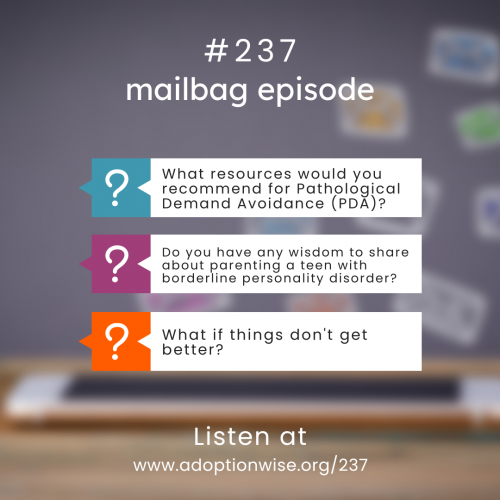
This week we answer listener questions such as:
- What resources would you recommend for Pathological Demand Avoidance (PDA)?
- Do you have any wisdom to share about parenting a teenager with borderline personality disorder?
- What if things don’t get better?
Click here to download the transcript for this episode.
Relevant Links
Melissa’s Ted Talk on Redefining Success
6 February 2024, 6:00 am - 27 minutes 34 seconds#236: [workshop] Supporting Kids with FASD Part 2 with Sandra Flach
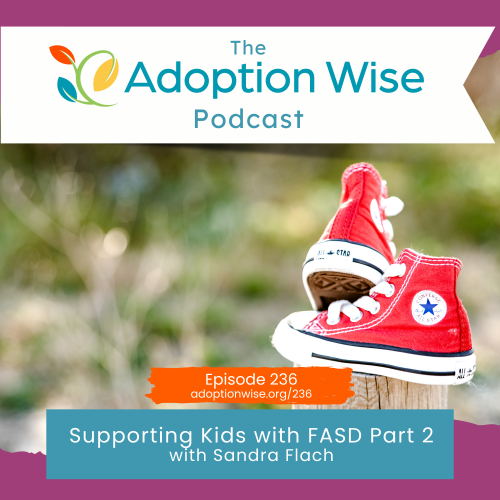
Many adoptive and foster parents wonder if their child may have FASD or they have a diagnosis but aren’t sure what to do next. Last time Sandra explored the impact of prenatal exposure to alcohol on a developing baby and identify the primary, secondary, and tertiary symptoms of FASD. This week in Part 2, you will learn practical techniques for accommodating and supporting children with FASD.
Sandra Flach is a mom of 8 children, 5 through adoption—2 diagnosed with Fetal Alcohol Syndrome. She encourages and equips foster and adoptive parents through her weekly Adoption & Foster Care Journey Podcast and blogs at SandraFlach.com. Sandra is co-founder of Justice For Orphans and author of Orphans No More: A Journey Back to the Father. She is also a trained facilitator of the FASCETS Neurobehavioral Model. Sandra and her husband Wayne have been married 35 years. They reside in upstate New York where they love to spend time with family, especially their 8 grandchildren.
Click here to download a transcript for this episode.
Relevant Links
Orphans No More* by Sandra Flach
*this is an affiliate link
23 January 2024, 6:00 am - 41 minutes 11 seconds#235: [workshop] Supporting Kids with FASD Part 1 with Sandra FlachMany adoptive and foster parents wonder if their child may have FASD, or they have a diagnosis but aren't sure what to do next. In Part 1 of this workshop, you will explore the impact of prenatal exposure to alcohol on a developing baby and identify the primary, secondary, and tertiary symptoms of FASD. In Part 2, you will learn practical techniques for accommodating and supporting children with FASD. Sandra Flach is a mom of 8 children, 5 through adoption—2 diagnosed with Fetal Alcohol Syndrome. She encourages and equips foster and adoptive parents through her weekly Adoption & Foster Care Journey Podcast and blogs at SandraFlach.com. Sandra is co-founder of Justice For Orphans and author of Orphans No More: A Journey Back to the Father. She is also a trained facilitator of the FASCETS Neurobehavioral Model. Sandra and her husband Wayne have been married 35 years. They reside in upstate NY where they love to spend time with family, especially their 8 grandchildren. Click here to download a transcript for this episode. Relevant Links Justice for Orphans Sandra's Blog Orphans No More* by Sandra Flach *this is an affiliate link9 January 2024, 6:00 am
- More Episodes? Get the App
Your feedback is valuable to us. Should you encounter any bugs, glitches, lack of functionality or other problems, please email us on [email protected] or join Moon.FM Telegram Group where you can talk directly to the dev team who are happy to answer any queries.
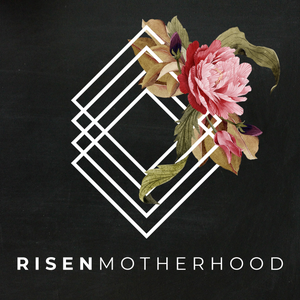 Risen Motherhood
Risen Motherhood
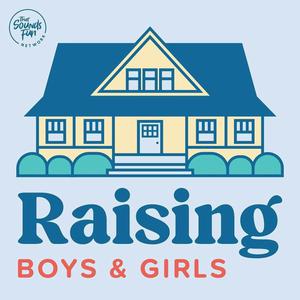 Raising Boys & Girls
Raising Boys & Girls
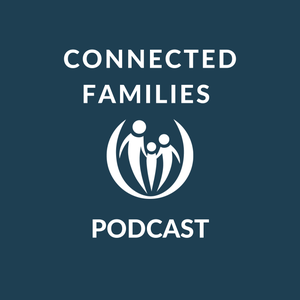 Connected Families Podcast
Connected Families Podcast
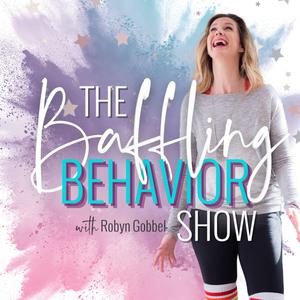 The Baffling Behavior Show {Parenting after Trauma}
The Baffling Behavior Show {Parenting after Trauma}
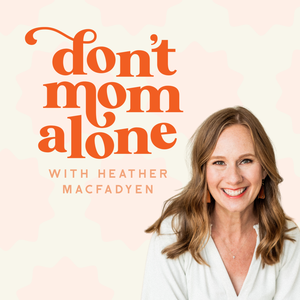 Don't Mom Alone Podcast
Don't Mom Alone Podcast
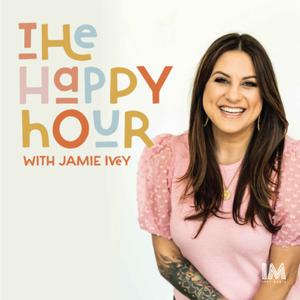 The Happy Hour with Jamie Ivey
The Happy Hour with Jamie Ivey